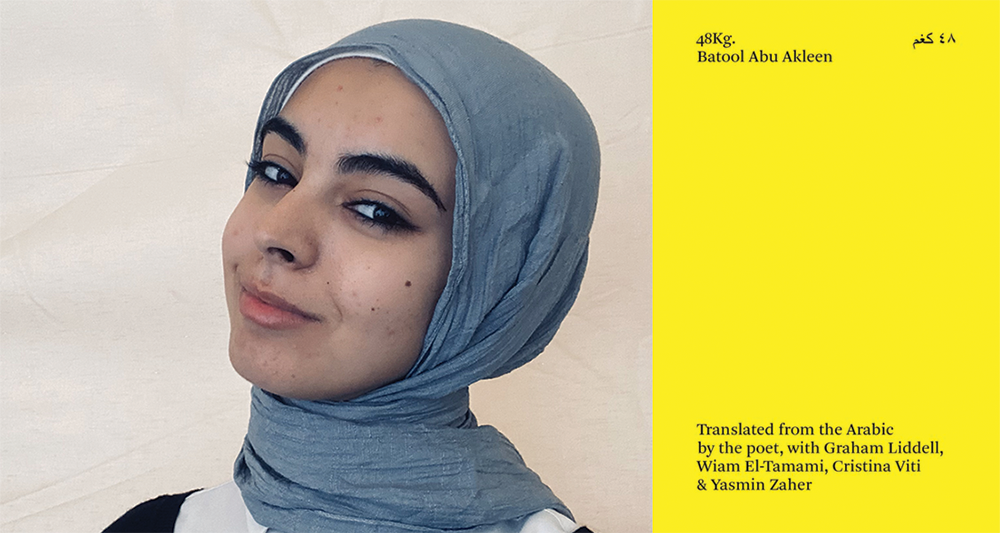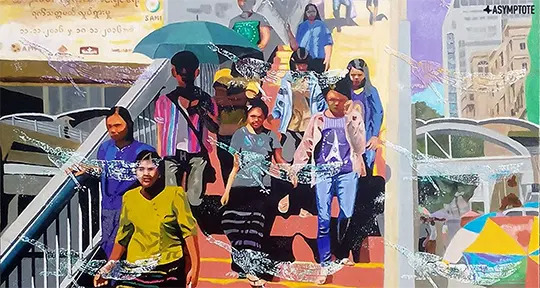48kg by Batool Abu Akleen, translated from the Arabic by Batool Abu Akleen, Graham Liddell, Wiam El-Tamami, Cristina Viti, and Yasmin Zaher, Palestine, Tenement Press, June 2025
Batool Abu Akleen’s bilingual collection of poems, 48kg, is not solely a powerful literary work; rather, it is a testimony of the genocide that has been wrought upon Gaza for the past two years, written in a poetic verse and style. Her writing is urgent, heart-breaking, honest, and brutal; every line lingers long after reading.
A blend between personal witness and poetic verse, the collection was translated from the Arabic by Akleen herself along with Graham Liddell, Wiam El-Tamami, Cristina Viti, and Yasmin Zaher. The close collaboration ensured that the urgency of her voice was not lost in translation. Indeed, her first-hand experience of the genocidal war on Gaza is not hidden in gentle language, and the bilingual nature of the text puts the original Arabic side-by-side with its English counterparts. In translation, Akleen endeavors to convey her experience of genocide to a broader, non-Arabic speaking audience.


